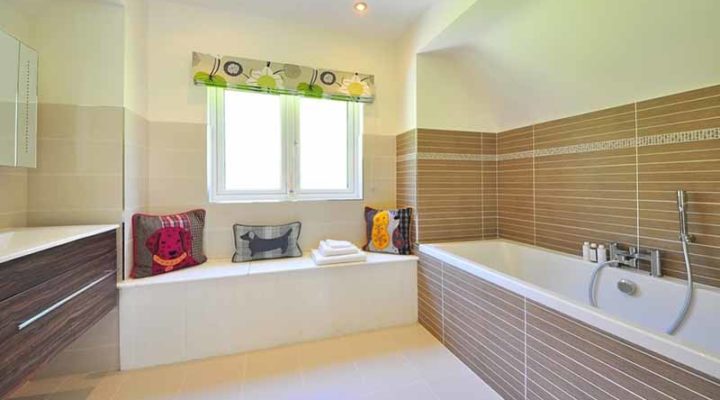
Hard water is a common problem in many parts of the United States. While it is not necessarily harmful to your health, it can cause several problems around the house. In this article, we’ll look at what hard water is, how it can affect your home, and what you can do about it.
What is Hard Water?
Hard water is simply water that contains a high concentration of minerals, such as calcium and magnesium. These minerals are naturally occurring and are usually not harmful to your health. However, they can cause several problems around the house.
For example, hard water can make it challenging to get your dishes clean. The minerals in the water can leave behind a film on your dishes that is difficult to remove. Hard water can also make it challenging to get your clothes clean. The minerals can build up in your washing machine and your clothing, making them stiff and scratchy.
In addition, hard water can damage your plumbing. The minerals can build up in your pipes and fixtures, causing them to become clogged or damaged over time. If you have hard water, you may need to replace your plumbing more often than if you live in an area with soft water.
What Can You Do About Hard Water?
If you are concerned about the effects of hard water on your home, there are a few things you can do about it. One option is to install a water softener. A water softener is a device that removes the minerals from your water, making it softer and easier on your plumbing. If you want a high-quality but low-cost water softening, this Canadian water softener system is the perfect option for your home.
Another option is to use bottled water for drinking and cooking. This will help to ensure you are not consuming high levels of minerals. You can also use filtered water for drinking and cooking. Filtered water will not remove all of the minerals from your water, but it will reduce the number of minerals in it.
If you are concerned about the effects of hard water, talk to your local plumber or water Treatment Specialist. They can help you determine if hard water is a problem in your area and recommend the best course of action for your home.
What are the best materials for a bathroom to avoid hard water?
When choosing the best materials for your bathroom to avoid hard water, there are a few different things to consider. The first is the type of material your bathroom fixtures are made of. Hard water can cause mineral deposits on these surfaces, so choosing a material that won’t easily damage is essential. common choices for bathroom fixtures include porcelain, enamel, or stainless steel.
Another factor to consider is the type of water heater you have. If you have a standard tank-style water heater, there is a good chance that hard water is already causing damage to it. In this case, it’s especially important to choose materials that will be resistant to this damage. Some good choices include glass-lined tanks or tanks made of corrosion-resistant metals like stainless steel.
Finally, you’ll also want to consider the type of water filtration system you have. If you don’t have a good water filtration system, hard water can quickly clog up your pipes and reduce water flow to your fixtures. This can be a severe problem, so choosing materials resistant to clogging is essential. Some good choices for bathroom plumbing include PVC pipe or copper piping.
By taking all of these factors into consideration, you can be sure to choose the best materials for your bathroom to avoid hard water damage.
How do you deal with hard water in your home?
If you live in an area with hard water, you know that it can be a nuisance. The minerals in hard water can leave behind a film on your dishes and clothing and damage your plumbing over time. But there are some things you can do to help mitigate the effects of hard water in your home.
One option is to install a water softener. A water softener is a device that removes the minerals from your water, making it softer and easier on your plumbing. You may also want to use bottled or filtered water for drinking and cooking to avoid consuming high levels of minerals.
If you are concerned about the effects of hard water, talk to your local plumber or water treatment specialist. They can help you determine if hard water is a problem in your area and recommend the best course of action for your home. With a little effort, you can make hard water work for you instead of against you.
How do you soften hard water permanently?
There are a few ways that you can soften hard water permanently. The most common way is to install a water softener. A water softener removes the minerals that cause hardness from the water. This can be done either through ion exchange or reverse osmosis.
Another way to soften hard water permanently is to install a whole-house filtration system. This system will filter all the water entering your home, so you won’t have to worry about hard water again.
If you’re looking for a more natural solution, you can try adding some limestone to your water. Limestone is made of calcium carbonate, which will help neutralize the hardness in your water. You can add limestone to your water or have it professionally installed.
No matter your chosen method, you can do a few things to ensure that your hard water is softened permanently. Be sure to follow the instructions that come with your chosen method and check your water regularly to ensure that it is being appropriately softened. With a little effort, you can enjoy soft, clean water for years to come!
Leave a Reply